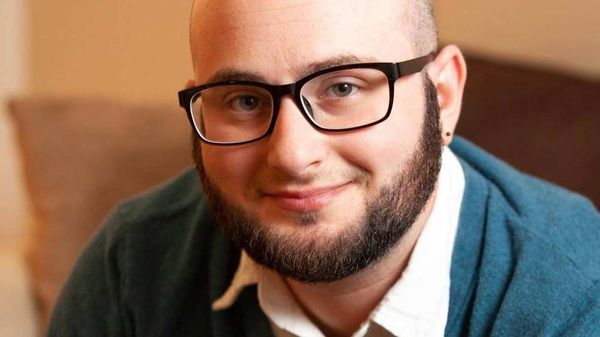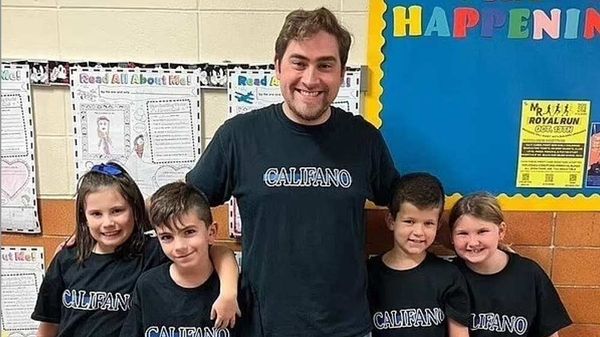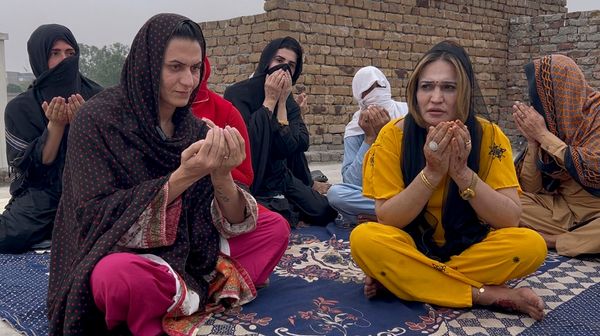March 23, 2008
'The biggest threat'
Michael Wood READ TIME: 6 MIN.
Last month a California teenager was shot in the head by a classmate because his classmate didn't like that the teen was gay. The tragedy was covered by the media, but it received nothing approaching the attention given to Oklahoma state Rep. Sally Kern's now infamous anti-gay tirade, which was surreptitiously taped and then posted for the world to hear on YouTube.
The contrasting reactions - one might think that the allegedly premeditated murder of an openly gay 15-year-old in a school classroom would have sparked the nearly two weeks of outraged blog commentary, opinion columns, newscasts and coast-to-coast media coverage that Kern has - are puzzling. As some observers of the Kern debacle have observed, the Republican legislator has become a lightning rod because her comments were so extreme they couldn't be ignored, especially coming from the mouth of an elected official. But executing someone allegedly because he's gay, it's safe to say, is extreme.
Perhaps it's a lot easier to listen to a three-minute audio clip and have a good long derisive laugh at the Bible-thumping crazy homophobe than it is to the confront the reality that LGBT people get killed simply for being themselves. Or maybe it's just social media 2.0 at work. As Justice Waidner, the executive director of Oklahomans for Equality pointed out about the viral nature of YouTube, "It's amazing to me how media works now and how quickly information can spread. So of course for Oklahoma when we realized that more than a million people had seen these comments from a representative of ours it became very evident to a lot of our media outlets here and of course to our organization that [we] needed to respond, that we needed to have a far-reaching response."
Waidner added that her organization has worked to turn Kern's "hateful rhetoric into something positive."
Since the Gay and Lesbian Victory Fund posted Kern's diatribe, which she reportedly delivered to a group of supporters in her Oklahoma City district back in January, on YouTube on March 7, it's gotten nearly a million hits. Kern called homosexuality "the biggest threat our nation has, even more so than terrorism or Islam," in addition to voicing some other unflattering things about gay people. In the aftermath, Kern has been pilloried on the editorial page of her local paper (one editorial was headlined "When Scary Met Sally,") lampooned by Ellen on national TV ("Hi it's Ellen DeGeneres, uh, the gay one," DeGeneres said during a televised phone call to Kern's office) and even made headlines at the celebrity gossip blog PerezHilton.com, which averages more than two million visits a month (Perez's collection of Sally posts is filed under "Icky Icky Poo").
Local TV newscasts have covered the controversy over Kern's comments from every angle, from her on-camera contention that her comments were taken out of context to her steadfast refusal to apologize, to an interview with a local Muslim leader who suggested that Kern's blanket generalization that Islam is a threat to the nation could incite violence against the Muslim community. The student newspaper at the University of Montana, Missoula snarkily asked to hear more: "Ms. Kern, so you don't leave anyone out, next time please enlighten us with your views on Mexicans."
After a crowd of about 300 turned up to protest Kern's comments at the Oklahoma State House, Kern made The New York Times which reported that the Republican legislator "was not present for the 40-minute protest, and the door to her office was locked."
The media onslaught has fed on itself, leading to some bizarre tangents. LGBT bloggers circulated a story that Kern's son Jesse is gay, prompting him to deny the claim in an interview with the Tulsa World. Though Jesse Kern noted that a person's sexuality is no one's business, he went on to state that he practices celibacy in order "to give to my God." And after Kern insinuated to reporters that she had received death threats in the wake of the publicity of her remarks, a spokesman for the Oklahoma State Bureau of Investigation, which was reviewing the torrent of angry emails to Kern, disputed her claim, stating, "I wouldn't characterize them as death threats."
The Gay and Lesbian Victory Fund aimed to give mainstream Americans a listen to the right-wing vitriol to which the LGBT community has long been subjected by disseminating the audio, said Denis Dison, the organization's vice president of communications. "I hope that one of the things that happened is that a broader cross section of America got to hear, really, some of the worst things that are being said about gay people," said Dison. "And that it was from an elected official just makes it much, much worse."
Neil Giuliano, the executive director of the Gay and Lesbian Alliance Against Defamation (GLAAD), attributed the glut of media attention to Kern to the perception of her comments "as outrageous and sensational." But, he added, "there needs to be a better examination in the media of how such high-profile anti-gay sentiment can create a harmful atmosphere for LGBT people. Luckily, many people in the Oklahoma and LGBT community have been speaking out against Kern's remarks."
Waidner agreed that much of the media attention stems from the fact that Kern's comments are "above and beyond" the sentiments of the average person who may be uncomfortable or familiar with LGBT people and their issues. Portraying LGBT people as a more perilous threat than terrorism, particularly given that the Oklahoma City bombing is part of the state's collective consciousness, "really pushed it too far for most folks."
Dison said the recording of Kern's speech was made by a Democratic activist in Oklahoma who attended the meeting between Kern and her constituents, which was a public meeting. He declined to name the activist or state how Victory Fund came into possession of the recording, which he said was 40 minutes long. The YouTube posting of Kern's comments, said Dison, cobbled together some of the "most outrageous parts" of Kern's speech. "Sally Kern keeps saying her comments were taken out of context. They were not," Dison laughed. "We didn't need to spice up anything that she said. It was pretty awful."
Kern's stubborn refusal to apologize for her comments probably hasn't done much to quell the backlash against her either. After all, even the Rev. Jerry Falwell apologized in the face of national outcry after he said that the ACLU, gay people and abortionists were to blame for the 9/11 terror attacks, and celebrity routinely atone for their transgressions with some public mea culpa (Isaiah Washington), performing with Elton John (Eminem) or professing their love for the gays in an interview with The Advocate (Mark Wahlberg, Bill O'Reilly). But as recently as March 18, an unrepentant Kern told the Associated Press, "I see no reason to apologize for what God says, that homosexuality is a sin. ... I will not apologize. I did not say anything false. I did not say anything malicious or hateful."
"We definitely believe that her unapologetic stance to what she said is a huge factor in why the situation continues building in momentum," said Waidner.
It's unlikely that Kern, who is married to a Baptist minister, will change her anti-gay attitude anytime soon despite the widespread public condemnation of her remarks, in which she also claimed, "it's a matter of fact, studies show that no society that has totally embraced homosexuality has lasted more than, you know, a few decades," and compared homosexuality to a metastasizing toe cancer, as in, "if you've got cancer or something in your little toe, do you say I'm just going to forget about it because the rest of you is fine? It spreads, okay. And this stuff is deadly and it's spreading and it will destroy our young people and it will destroy this nation." Kern is well known to Oklahoma's LGBT community, having sponsored a bill to deny funding to public libraries that refused to segregate LGBT-themed books and attempting to prevent students from joining gay/straight alliances without parental consent. But Waidner said that for most LGBT advocates, it's no longer about Sally Kern's bigotry; rather it's about using her comments to stimulate productive dialogue and create systemic change. Her organization is actively going to use the opportunity to renew the push to pass LGBT-inclusive hate crimes and employment non-discrimination protections in Oklahoma.
"[Kern] gave us an opportunity and an incredibly strong springboard from which to launch into dialogue with our wider community about homophobia, bigotry and about the importance of elected officials representing all of their constituents," said Waidner.
But there's a downside to Kern's comments - beyond the obvious - said Jimmy Creech, a board member of Faith in America, an organization that seeks to end religious bigotry against LGBT people. They're so offensive, he contends, that the average person may write them off as meaningless extremism. "The reality is there are more sober, more carefully crafted and stated opinions by elected officials that are just as harmful but not as offensive," said Creech, for instance, President Bush's call for a constitutional amendment to protect the sanctity of marriage. "That's sort of a subtle and nice way of saying gay people should not be allowed the full rights of others," Creech said. ... It's kind of like the way Fred Phelps makes fundamentalists look good. She is so bad that she can make others who are also bad look good."
Michael Wood is a contributor and Editorial Assistant for EDGE Publications.







